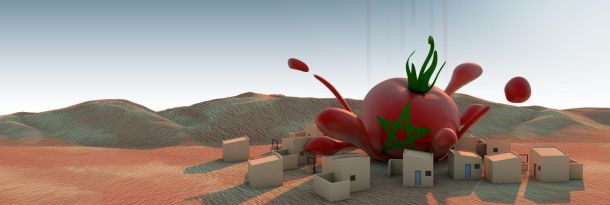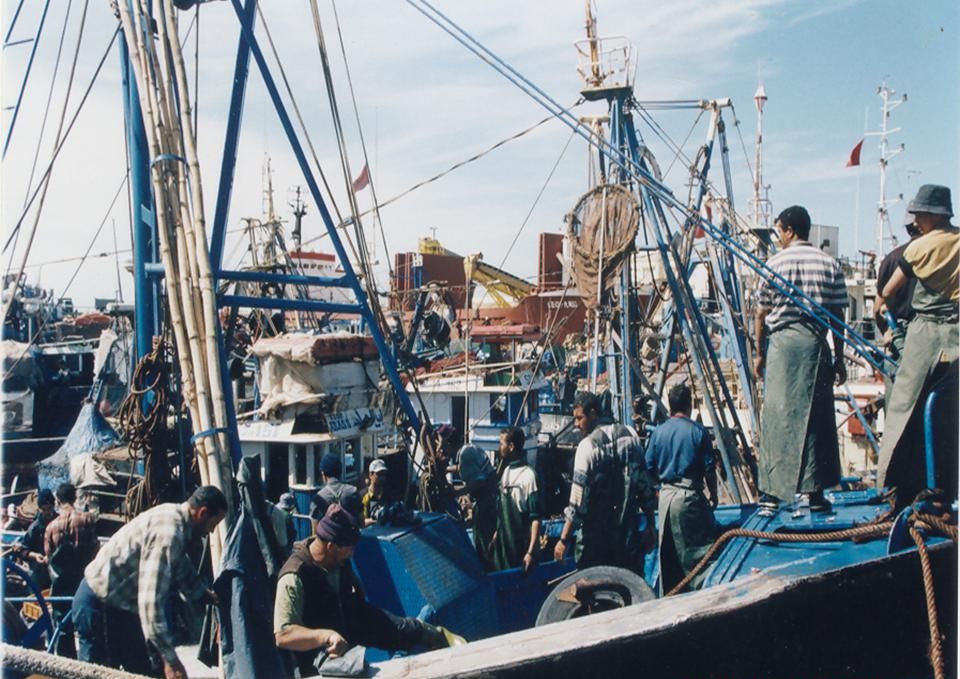
All four members states of the EFTA free trade association - Norway, Switzerland, Iceland and Liechtenstein - conclude in the same way as the Court of Justice of the European Union. Goods from Western Sahara cannot be included in free trade agreements with Morocco.
Above: fish meal being loaded onto a vessel in El Aaiun, Western Sahara. Iceland has previously imported fish meal from the occupied territory.
The newly appointed foreign minister of Iceland on 18 April came with a clear statement in the Icelandic parliament regarding whether or not goods from Western Sahara are part of the free trade agreement that Morocco has with the EFTA states.
The following statement from Icelandic is a translation by Western Sahara Resource Watch:
"The hon. MP asked whether the Minister agrees with the interpretation of the Norwegian and Swiss authorities that the free trade agreement between EFTA and Morocco does not cover goods from Western Sahara. This question has to my knowledge not been brought up in the Parliament before, although it is obviously in similar vein as the parliamentary resolution that I mentioned earlier. The question, however, has come up both in Switzerland and Norway, as it says in the query of the hon. MP. The position of both States has been that the agreement does not cover goods from Western Sahara, since the countries do not recognize the control of Morocco over the territory. To the extent that the matter has been discussed within EFTA, this sentiment has not been disputed, and Iceland and Liechtenstein have taken the position of Switzerland and Norway in this matter.
Mr. Speaker. The answer to this question is clear. We agree with the interpretation of the Norwegian and Swiss authorities on the EFTA and Morocco FTA, that it does not cover goods from the territory of Western Sahara."
The answer came as a response to the following question by MP Steinunn Þóra Árnadóttir:
"Does the hon. foreign minister agree with the interpretation of the Norwegian and Swiss authorities of the FTA between EFTA and Morocco from 1997, that it does not include goods from the occupied territory of Western Sahara ?“ [Original in Icelandic on parliament's website].
In the debate that followed, the MP Árnadóttir declared that she was happy with this reply from the Minister and added that there has been import of fish products from Morocco to Iceland in the past and that she would in the future look more into that and come up with follow up questions on whether we could be 100% sure about its origin. The Minister replied that this point was noted and that she would personally look into the matter.
In 2010, the imports of Western Sahara goods into the EFTA state of Norway caused a great scandal, as the goods were labelled as Moroccan upon imports. By failing to declare the correct country of origin, the importer was given a record fine from Norwegian customs of 1,1 million Euros. See EFTA statements from Norway and Switzerland government.
The Court of Justice of the European Union (CJEU) on 10 December 2015 landed on the same opinion as the EFTA states: that goods form the non-self-governing territory of Western Sahara cannot be included in the EU free trade agreement with Morocco. Close political allies of Morocco, mainly France, opposes that stance. France is blocking the self-determination process and independent UN human rights monitoring in Western Sahara through its permanent seat in the UN Security Council. An English version of the judgment from the CJEU was published few days ago.
Parts of Western Sahara have been occupied by neighbouring country Morocco since the 70s.
Swiss supermarkets ban produce from occupied Western Sahara
The Swiss trade statistics reveal that 2019 was the first year without any imports of fruits and vegetables from occupied Western Sahara.
First season in Switzerland without occupation tomatoes?
From this winter on, Swiss supermarkets will probably, for the first time, no longer sell tomatoes from occupied Western Sahara.


